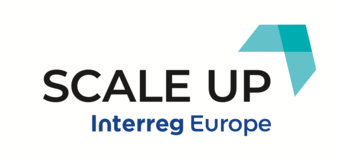Scaling up the smart way
Modularity, replicability, and speed― these are the principles Bent Flyvbjerg discusses in his paper entitled Four Ways to Scale Up: Smart, Dumb, Forced, and Fumbled. We know that the idea of scaling a business is one that every business owner thinks about, but don’t always follow through or don’t always succeed in doing. Various factors must be considered when scaling and businesses must meet a lot of pre-requisites in order to do so successfully. Unfortunately, meeting these ‘requirements’ are not always easy because each business has its unique situation making the requirements inconsistent. Thus, while there might be no right way to scale, there certainly is a smart way to do so.
To explain the interconnectedness between the abovementioned principles, let’s take the hypothetical example of Mrs. Schoon, a business owner operating a small enterprise of 10 employees providing cleaning services to individual homeowners. Due to the pandemic, a great emphasis has been placed on the importance of cleanliness not only with personal hygiene but also with living spaces and surfaces. While other businesses may have needed to shut down at the height of the pandemic, Mrs. Schoon’s business experienced great demand especially because of her “spotless in an hour” guarantee. To maintain this guarantee, a pair of employees personally trained by Mrs. Schoon work together to get the job done in an hour or less, depending on the size of the property. She thus reaches a crossroad where the opportunity to grow her business is in sight.
On one road, she is offered a one-time €20.000 investment opportunity with a newly established vacuum company offering her to test a prototype technology installed in their machines which would reduce the employees needed to work on one property while maintaining the promised guarantee. On another, her employees suggest that they recruit their friends who are looking for employment and for an increase in pay, the current employees will train the new employees and take them as their apprentice. On another road, a vocational school offers her a partnership deal of training new employees for a fee of €1.500 per employee trained. Finally, she also notices that at their current pace, she can keep costs lower compared to the other options while increasing revenue by just taking more clients per week, reducing the breaks, and increasing the salary of her current set of employees.
Which road would you take if you were in Mrs. Schoon’s position? If you decide the first option, you may have chosen the recipe for a dumb scale-up. This is because while the idea sounds promising, the reality would be that the technology involved does not provide security in its claims. Since the technology is still a prototype, setbacks and delays may be encountered in its development which would lead to a bespoke and slow development of Mrs. Schoon’s business. On the other hand, if you chose the last option, you may have chosen the recipe for a forced scale up. By maintaining the current number of employees while accepting more clients, Mrs. Schoon will be able to grow her business fast in terms of clients but will not be able to scale her business in a smart way because she has now compromised the quality of her employees’ work. Although enjoying an increase in pay, the employees will be fatigued from rushing from one house to another while trying to get everything cleaned in an hour. Meanwhile, if you chose the second option, you may have chosen the recipe for a fumbled scale up. While Mrs. Schoon has equipped her current employees with the knowledge and skills to train new employees, there is uncertainty as to how many friends each employee may bring and the rate at which they will learn. Hence, while the principle of modularity and replicability is present in this scenario, the speed at which the new employees may be deployed out on the field may vary resulting in a missed opportunity and a fumbled scale up. We are then left with the vocational school’s offer. Since the new employees are coming from a school with standardized training capabilities and steady stream of students, Mrs. Schoon is guaranteed a replicable training module delivered at speed. In batches, the school provides her with newly trained employees equipped to meet the demand of her growing business resulting in a smart scale up.
Similar to Mrs. Schoon’s position, Scale Up project partners are at a crossroad of designing their Action Plans to ensure that the good practice they have selected enable SMEs to scale up through a modular, replicable methodology delivered at speed. Stay tuned as the project soon embarks on its 2nd phase.











